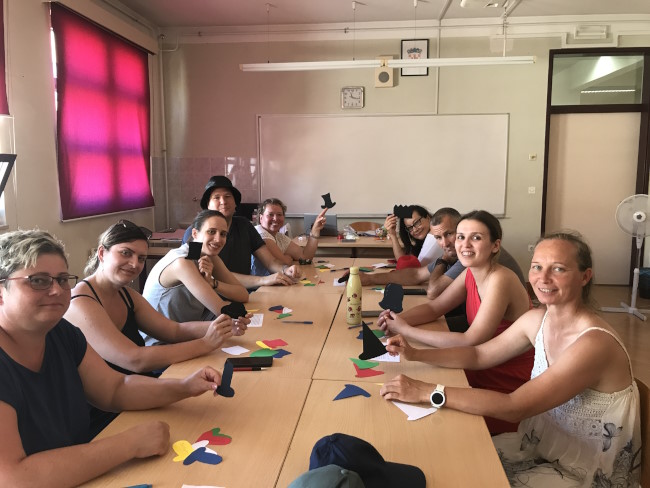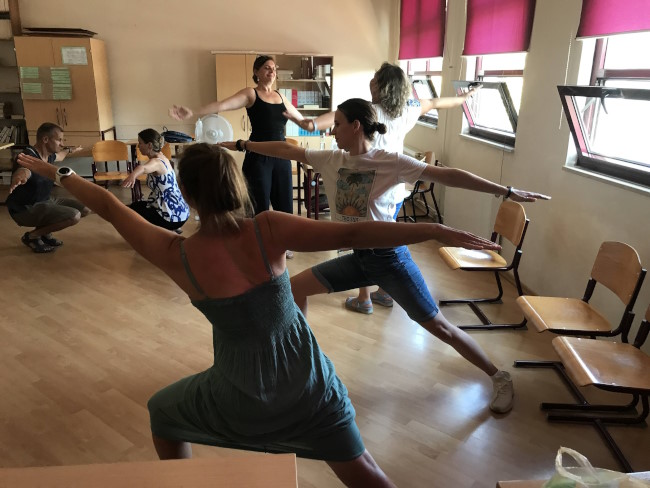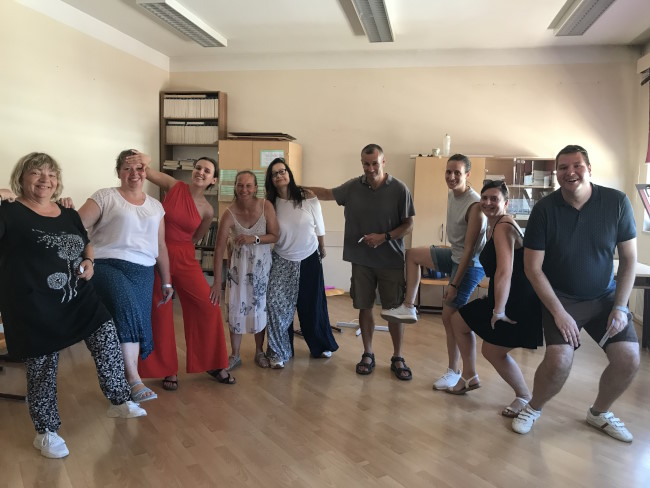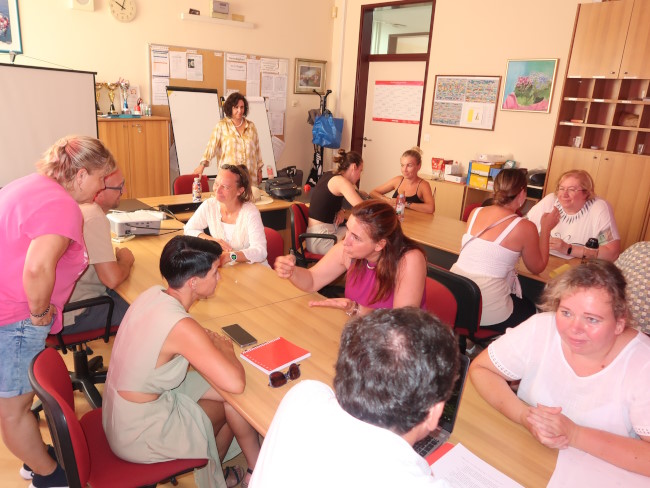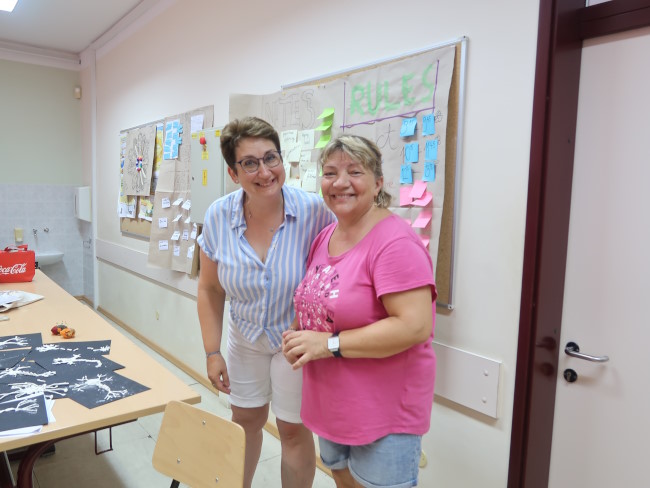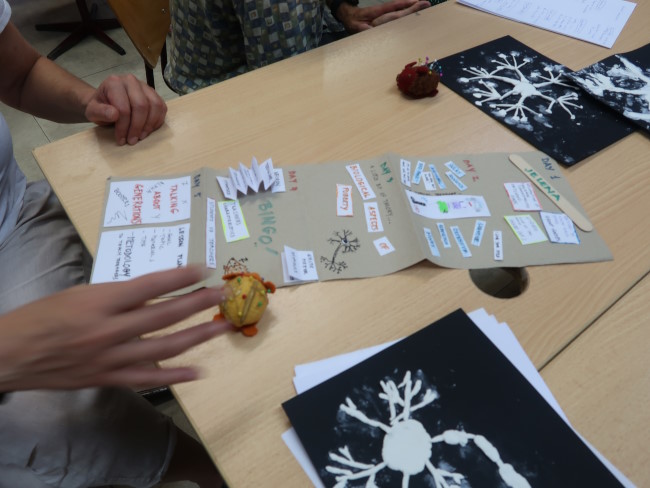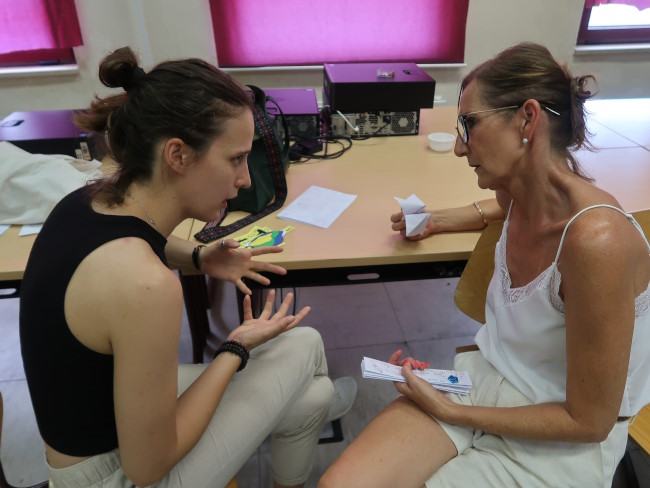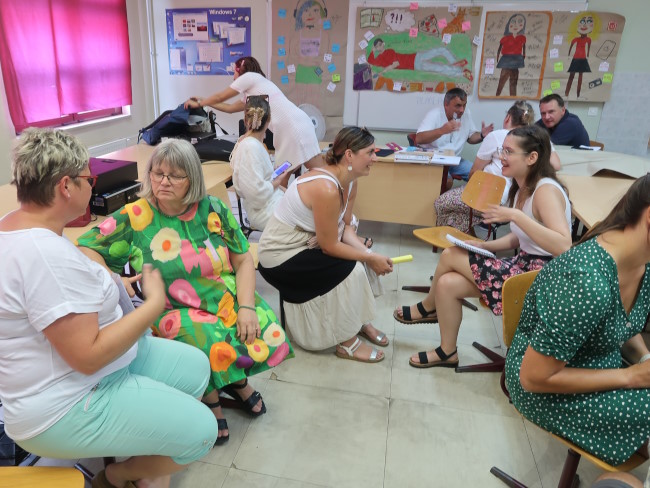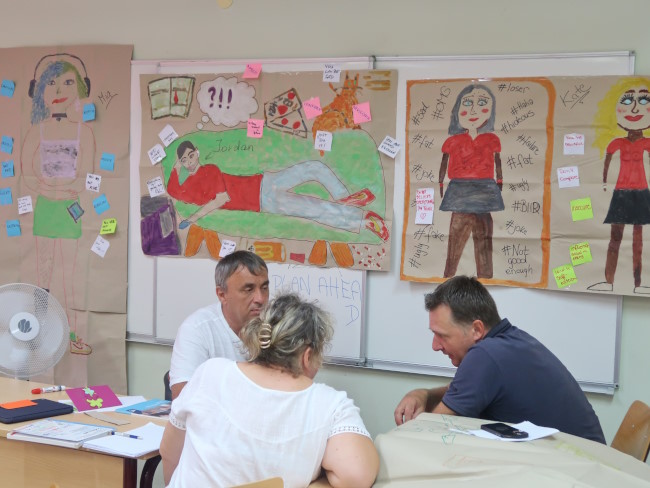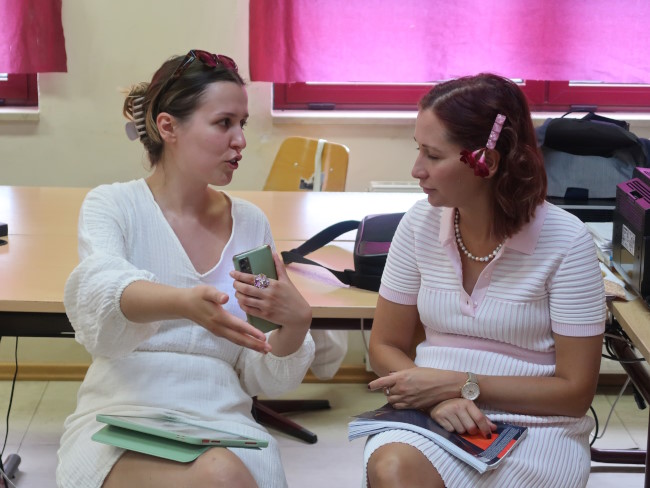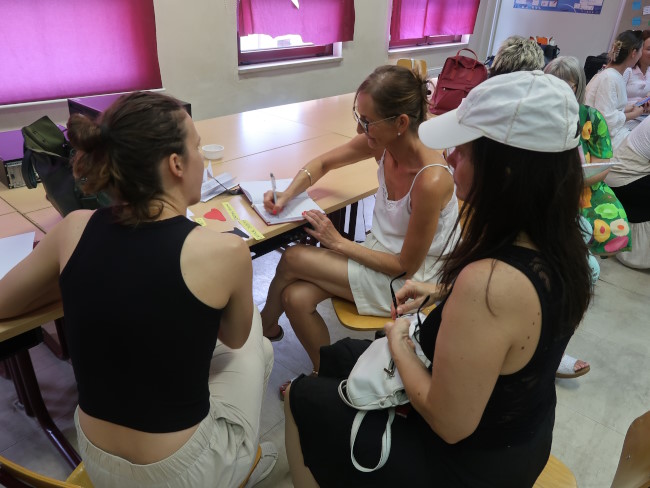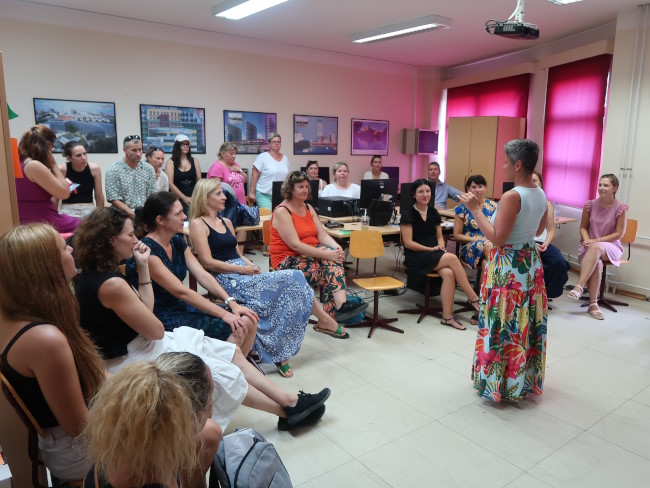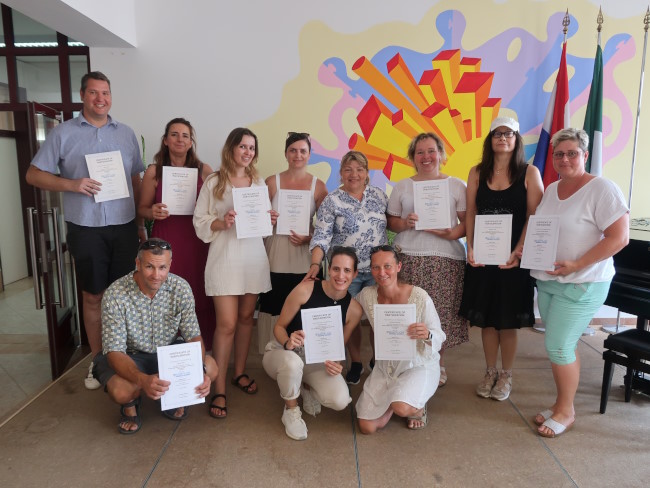Course Description
This course aims to empower participants by integrating drama techniques not only for personal development, including boosting confidence and communication skills, but also for managing group dynamics and resolving conflicts in educational settings.
- Ice Breakers and Expectations. The course kicks off with ice breakers to foster a comfortable environment for participants, allowing them to get to know each other and share their expectations for the program.
- Boosting Self-Confidence. Participants delve into different techniques to enhance self-confidence, focusing on identifying emotions, offering three confidence-boosting tips, managing pressure, and engaging in a gratitude experiment.
- Developing Communication Skills. This section concentrates on utilizing role-plays to improve communication. Topics include active listening, understanding body language, recognizing various communication styles, and honing public speaking abilities.
- Enhancing Group Dynamics. Participants learn how to build rapport, focusing on fostering concentration, cooperation, and trust within a group setting.
- Conflict Resolution. Participants explore using drama techniques to address and resolve conflicts within the classroom.
- The session concludes with a wrap-up, allowing participants to reflect on their key takeaways from the course, presenting their new skills to fellow teachers in the framework of a mini-SPRE project, followed by an evaluation process and certification.
Learning Objectives
- Increased creativity and building good rapport: providing a variety of good practices to create a positive, pleasant working environment.
- Increased self-awareness: to increase self-confidence participants will be able to establish a criteria system that can help to design and evaluate their goals in a meaningful way.
- Enhanced communication skills: Participants improve listening comprehension of different types of spoken texts – for understanding the speaker’s motivation and attitude.
- Enhanced resolving conflicts: using drama is an excellent tool for resolving different perspectives and conflicts. Participants will gain access to tools that help in resolving conflicts within the class.
- Enhanced teamwork and collaboration: participants will gain the skills to work collaboratively to generate, develop and communicate ideas effectively.
- Sharing and learning good practices: participants will have the opportunity to discuss their professional working conditions and solutions from their educational work freely.
Learning Outcomes
- Established Comfortable Learning Environment: Participants will acquire the ability to initiate and sustain a comfortable learning environment through the application of icebreakers, and fostering a positive atmosphere for personal and group development.
- Heightened Self-Confidence: Participants will demonstrate improved self-confidence by employing various drama techniques, including emotion identification, confidence-boosting strategies, pressure management, and engagement in gratitude experiments.
- Enhanced Communication Proficiency: Through the use of role-plays and interactive exercises, participants will develop advanced communication skills, including active listening, interpretation of body language, recognition of diverse communication styles, and the refinement of public speaking abilities.
- Strengthened Group Dynamics: Participants will acquire the skills to build strong group dynamics by focusing on the cultivation of concentration, cooperation, and trust within a group setting, promoting effective collaboration.
Effective Conflict Resolution: Participants will proficiently apply drama techniques to address and resolve conflicts within educational settings, gaining valuable tools for navigating diverse perspectives and resolving interpersonal disputes. - Reflective Practice and Key Takeaways: At the end of the course, participants will engage in a reflective wrap-up session, identifying and articulating key takeaways from the program, fostering a habit of self-reflection and continuous improvement.
- Application of Best Practices: Participants will have the opportunity to share and discuss professional working conditions and solutions from their educational experiences, fostering a collaborative environment for learning and implementing best practices in the field.
- Certification and Evaluation: Participants will undergo a structured evaluation process culminating in certification, demonstrating their understanding and application of drama integration techniques for personal and classroom development.
- Presenting the SPRE project to group members: presentation of a personal mini research project to peers following the SPRE stages (situation – puzzle – response – evaluation) at the on-site dissemination activity
Course Schedule
| Day 1 | Emotions and Self-confidence |
|
|
| Day 2 | Communication |
|
|
| Day 3 | Group Dynamics |
|
|
| Day 4 | Cooperation |
|
|
| Day 5 | Conflicts resolution |
|
|
| Day 6 | SPRE Day |
|
Dates and Prices
| Language level: | English B1 and above* |
| Locations: | Pula (Croatia) |
| Time: | 9 AM to 2:30 PM daily (extracurricular activities outside of learning activities) |
| Dates: | Pula: 28 July - 2 August 2025, 4-9 August 2025 (6 days, 30 lessons) |
| Price: | €510 (6 days) - including an extracurricular activity and a welcome lunch or dinner |
*The language of the course is English, linguistic aid may be provided for speakers of Hungarian with lower language abilities.
Conditions
The course complies with all rules as set in the Quality Standards of the Erasmus+ program. Courses are including an extracurricular cultural activity and a welcome lunch or dinner, and study groups are international. Note: should the latter condition not be met, participants will be informed 40 days in advance.
Payment facilities: participants with funding from the actual year’s project budget may ask to request a deposit of EUR 100 to guarantee their places on the course and pay the rest of the fees later.
It is possible to take part in 2 consecutive courses, please book both separately. A price reduction of 15% will be applied.
This course is hosted by Talijanska srednja skola Dante Alighieri (OID: E10101077) in Pula (Croatia).


